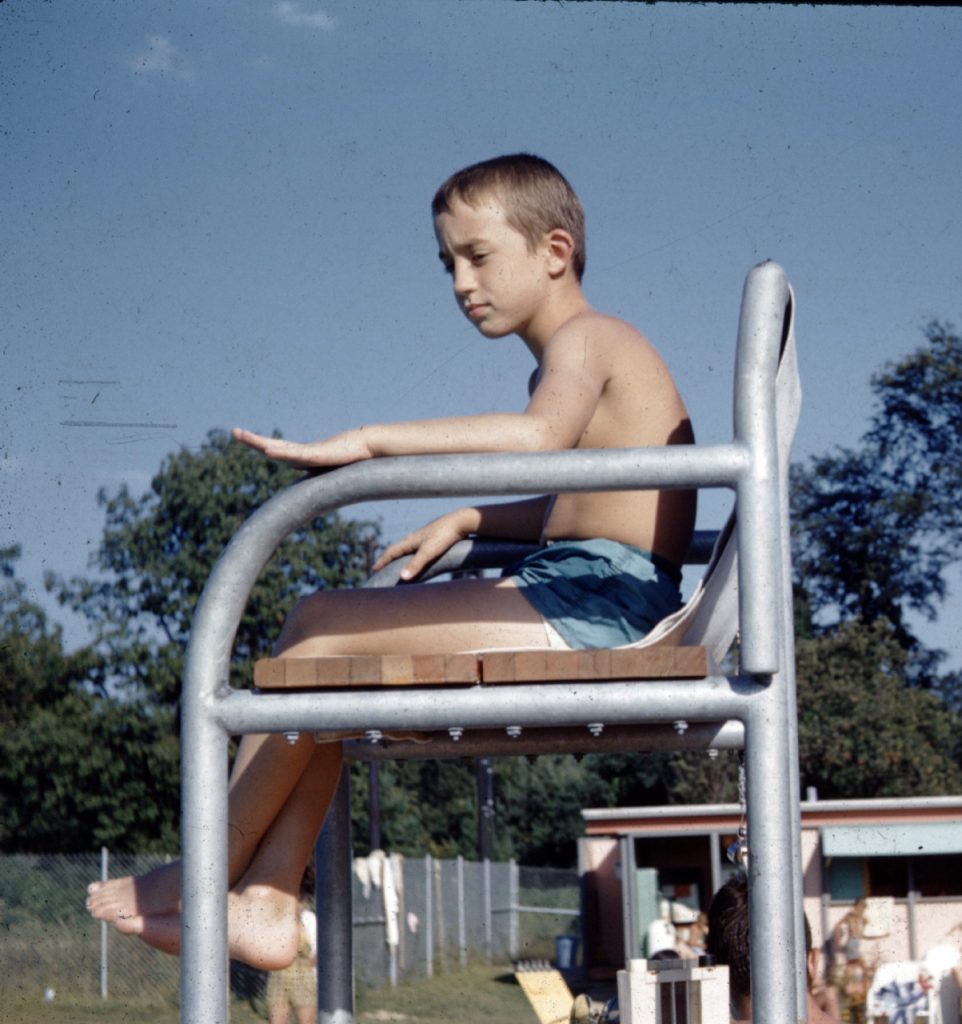
Christmas, 1961. Looking back, I’m wondering if my parents thought I might turn into an effete intellectual. Age 12, I was a poster child for pre-pubescent awkwardness. Baby fat pudgy cheeks hiding any facial definition, lips too large for my mouth, muscles still hidden and soft, topped by those clear-bottomed plastic spectacle frames for my severe myopia. I was book-smart, a heavy reader, smart-alecky clever, but seemingly uninterested in more manly pursuits.
Previous gifts had included football pads and helmet, an outdoor regulation (10 foot high) basketball hoop, baseball catcher’s gear (shin guards, mask, glove and chest protector), as well as the infamous transistor radio which at least got me to join the swim team. My dad had been a triple-letterman at the Naval Academy, after his Rough-Rider upbringing in the outback desolation of eastern Montana’s range country. But in the eighth grade, a year younger than my classmates, I was not attracted to any of the traditional team sports. Swimming, yes, and the debate team, but otherwise, I was in grave danger of falling into the vortex of the pointy-headed thinkers who made up the majority of my college-prep six year high school.
I still lacked any independent drive towards a singular life, maybe the last time I would be pliable to direction from my parents. The next-to-last present I opened revealed an air-driven pellet gun. Several yanks on the lever to build up internal pressure, load in small leaden cylinders, and this pistol-shaped cousin of the BB gun would fire at a target or small mammal without much fear of harming a human.
I had in my small collection of trinkets an award from my Iowa farm-girl mother, given by the NRA for her prowess as a “Sharpshooter – Prone Position”. Naturally competitive, I took that as a license to at least try out the gun, and see if I had an eye for it.
“Why don’t you take that downstairs, and set up the target where there’s more room,” my father instructed. I was still trying to figure out the priming and loading procedures as he waved a batch of paper bull’s-eyes at me. So down we went, through the kitchen and dinette, down the stairs, and turned right into the Rec room my father had been constructing.
The floor consisted of twelve-inch vinyl tiles, inlaid with not only a life-sized checkerboard in the middle, but also shuffle-board triangles at each end. Propped against the unused fireplace on the far wall were the still-to be assembled pieces for my father’s dream – a home-made pool table. We took a few of the stanchions meant to hold the felt-covered rolling surface, laid a 4’ x 4’ plywood flat across them, and propped the first target against some old books.
In the midst of all this activity, I stumbled across my final present. On the floor was a pile of black discs of varying size, one long rod and two smaller ones, and a book by Joe Weider, describing how to use these “barbells” and “dumbbells”.
Weider, though I did not know it, was probably more influential than Charles Atlas, the guy who graced the inside back covers of comic books, in creating our modern culture of body-building. Weight lifting at that time was still a niche sport, practiced by a few eccentrics who were most interested in how they looked, not how strong they were. Weider’s book tried to inculcate weight-lifting as a means to over-all health, not just out-sized muscles. He and his brother sponsored “Mr. Canada” contests as early as 1946, culminating in Mr. Olympia by 1965, fueling the career of Arnold Schwarzenegger as a result).
But in 1961, I knew nothing of either this past or future. I played with the airgun for a few weeks, but I never took it outside to shoot at squirrels or rabbits or graduated to heavier firearms. The weights, however, must have appealed to something deep within. The set totaled 100 pounds, and required slipping the weights on and off the various bars, then securing them with a collar and wrench. But I faithfully worked myself on simple exercises like curls and standing presses, until I joined the high school swim team as a sophomore. Our coach, Whitey Davis, thought weight-lifting would make us muscle-bound, and forbade it. Since it was hard work anyway, I was glad for the excuse to quit.
